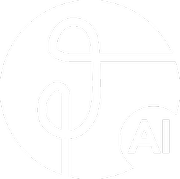Report for “The Reasoner”
[Published as “Philosophy and Theory of Artificial Intelligence, 3–4 October”, The Reasoner 5 (11), 192-193.]
Draft
Report for “The Reasoner”
http://www.thereasoner.org/
17.10.2011
VCM
=====================
Conference
“Philosophy and Theory of Artificial Intelligence”
3 & 4 October 2011
Thessaloniki
Anatolia College/ACT
http://www.pt-ai.org
Organization:
Vincent C. Müller, Professor of Philosophy at ACT & James Martin Fellow, Oxford
http://www.sophia.de
Sponsors:
EUCogII, Oxford-FutureTech, AAAI, ACM-SIGART, IACAP, ECCAI
The programmatic call for the conference said: “The theory and philosophy of artificial intelligence has come to a crucial point where the agenda for the forthcoming years is in the air – this conference will try to set that agenda and to gather many of the key players.” – Gathering many of the key players it certainly did, with most of the ‘who is who’ present (1/3 of participants came to Greece from outside Europe). We had 52 speakers at the event, after a rigorous double blind reviewing procedure – see http://www.pt-ai.org/program for the program and abstracts. The conference at the leafy Anatolia campus and balmy autumn weather provided a pleasant setting with plenty of space for informal interaction, which is often the most productive part of conferences.
As for setting the agenda, at the outset of the conference we had Hubert Dreyfus warning us of the ‘first step fallacy’ for progress in AI (we have made the first step successfully and therefore all the next steps are straight ahead and feasible), while in the last keynote talk Jim Moor warned of a ‘last step fallacy’ in the area of computer ethics (we do not know whether we will ever have the last step of fully responsible artificial agents, therefore we should not make the first step towards robotic ethics). Perhaps on could use these points to characterize the agenda in the field: One camp says that certain mental properties are necessary for intelligence and then discuss how and if these can be achieved in artificial systems, while another camp asks how we can get ahead towards more intelligent behavior without directly aiming for systems that have ‘mental properties’. For the first camp, AI and Cognitive Science are just two sides of the same coin, for the second, the two are only loosely connected.
Much of the discussion at our meeting was in the first (CogSci) camp, especially on what should come after the demise of cognition as computational symbol manipulation. Aspects of non-classical Cognitive Science proposed included embodiment and morphology (Pfeifer, Gomila, Ziemke), (inter-)active cognition (Bickhard, O’Regan), dynamic systems (Dreyfus) or a new understanding of consciousness (O’Regan, Chrisley) and of meaning (Bishop, Bringsjord). (Of course, I mention only a few names – in any case, organizers see little of their own conferences.) Within that first camp, there was also a considerable current of ‘classical CogSci’ approaches through computational symbol manipulation or of attempts to combine both in a ‘dual-theory’ (e.g. Bringsjord, Bach, Gomila, Miłkowski). As for the second camp of ‘nonCogSci-AI’, this can be seen in Pfeifer’s (Brooks’ style) embodiment, Sloman’s ‘virtual machines’, Scheutz’ emphasis on capabilities or in Bostrom’s discussion of the consequences of upcoming machine superintelligence – and of course this camp is dominant in technical AI meetings. Finally, there are fundamental issues on the theory of computation that are central for many (C. Smith, Shagrir, Bokulich and others) and there is a move towards respectability for a discussion of ‘singularity’ (Dreyfus, Bostrom, Sandberg, Yampolskiy etc.). The urgency to discuss the ethics and societal relevance of AI is gaining ground – whether or not AI is ultimately ‘possible’.
Overall, the theory and philosophy of AI has set itself free from the single focus on the criticism of computational symbol manipulation; it has moved towards a new Cognitive Science and, in some quarters, a less intimate link with Cognitive Science overall. These developments support a more constructive cooperation with those who do ‘the real work’ – but also face the real basic problems.
The invited papers of PT-AI 2011 will be published in two special volumes of the journal “Minds and Machines” 2012 and the section papers as a book with Springer Publishers in the new ‘SAPERE’ series in 2012. We have asked the participants for feedback on the event – and if that is positive (which seems likely) we will have more meetings on the “Philosophy and Theory of AI” in the future. You are welcome!
Vincent C. Müller
